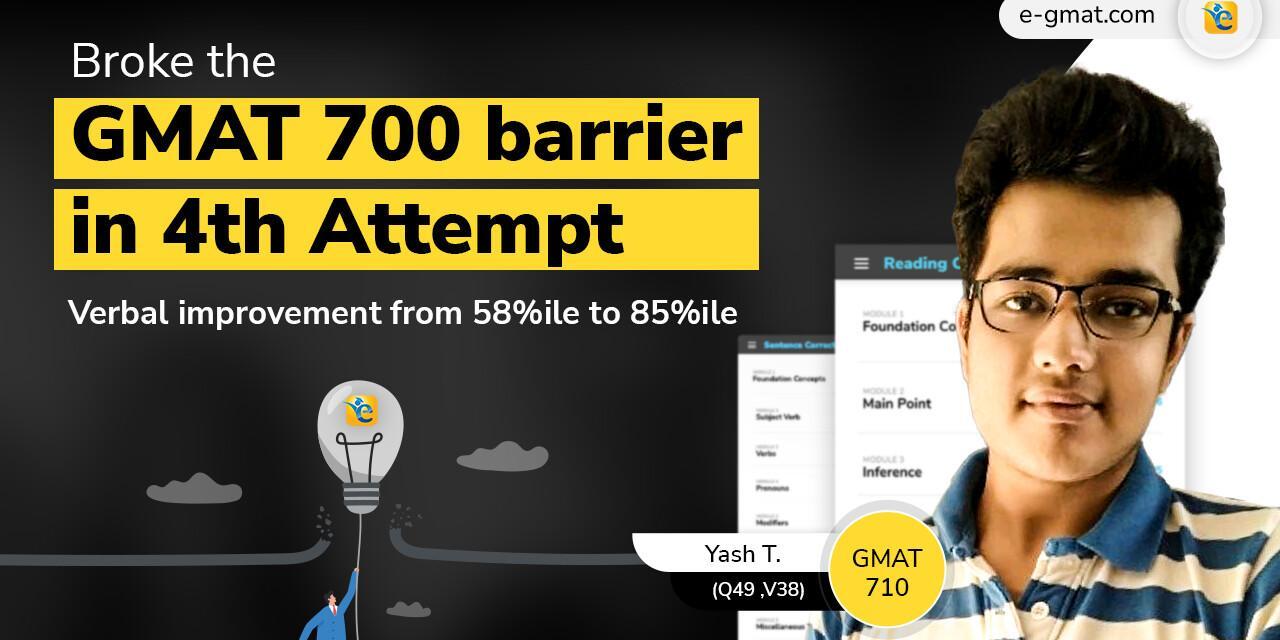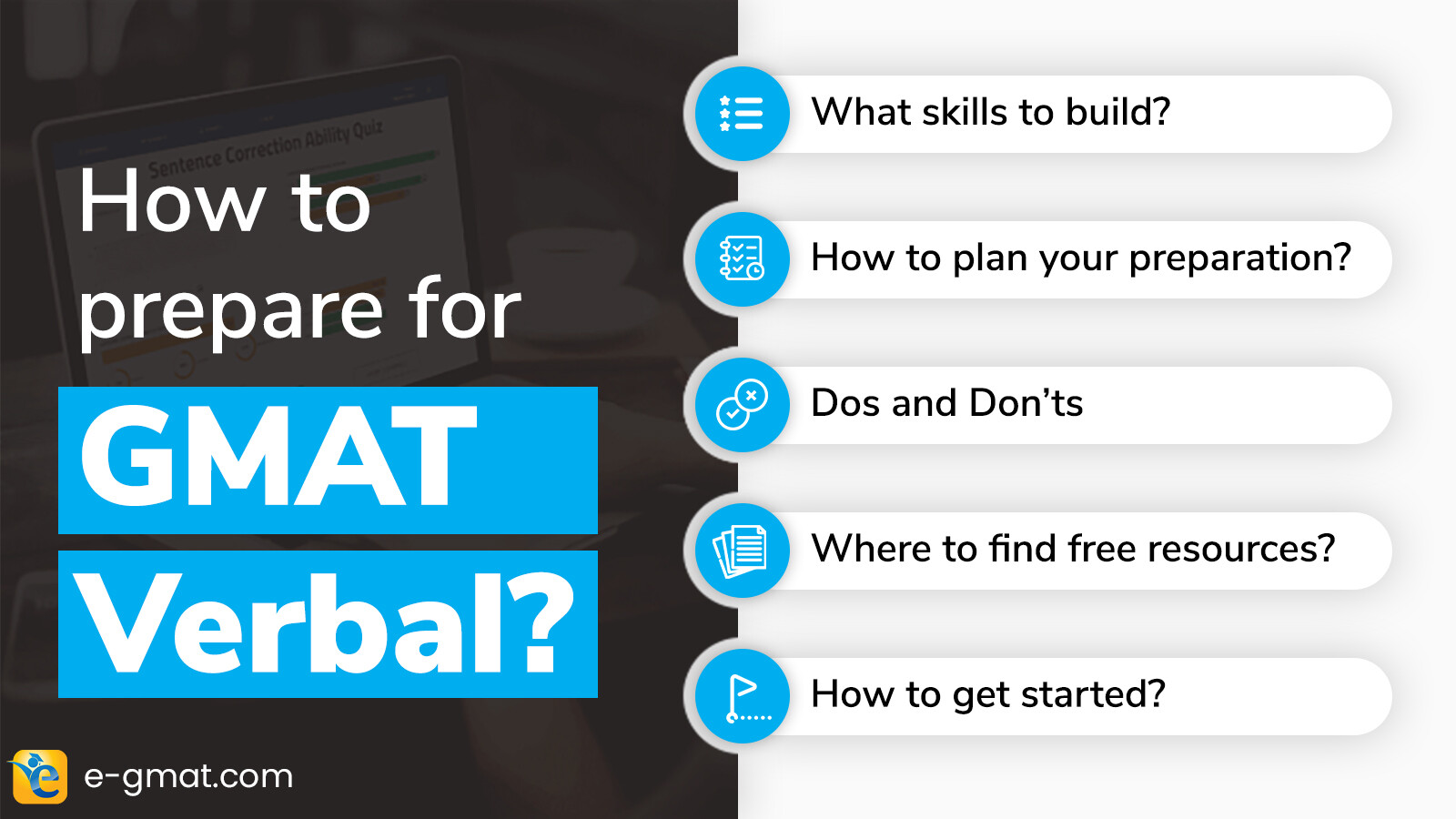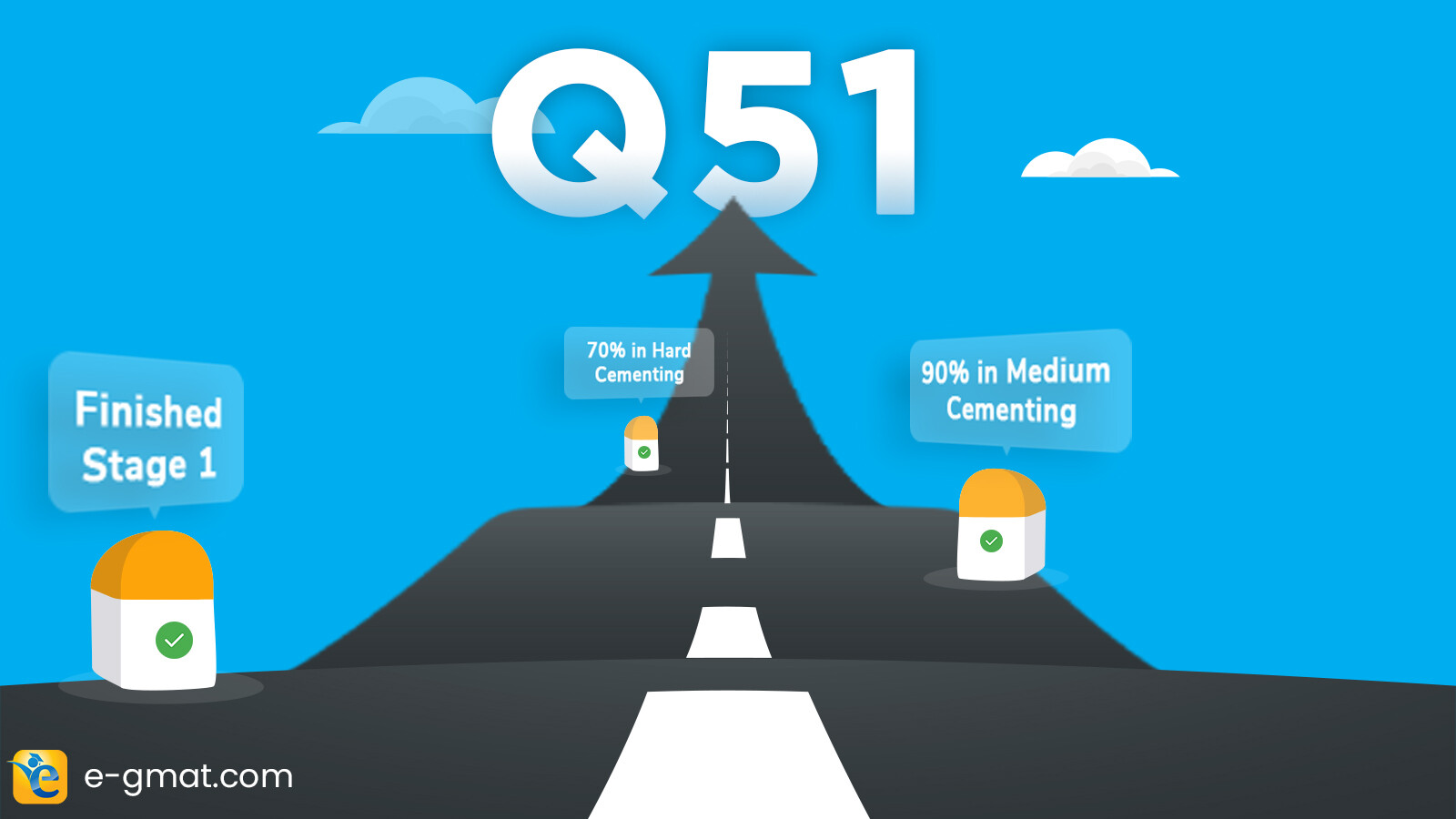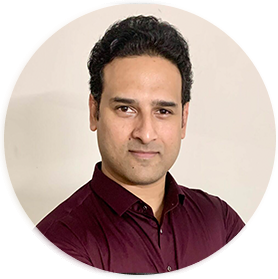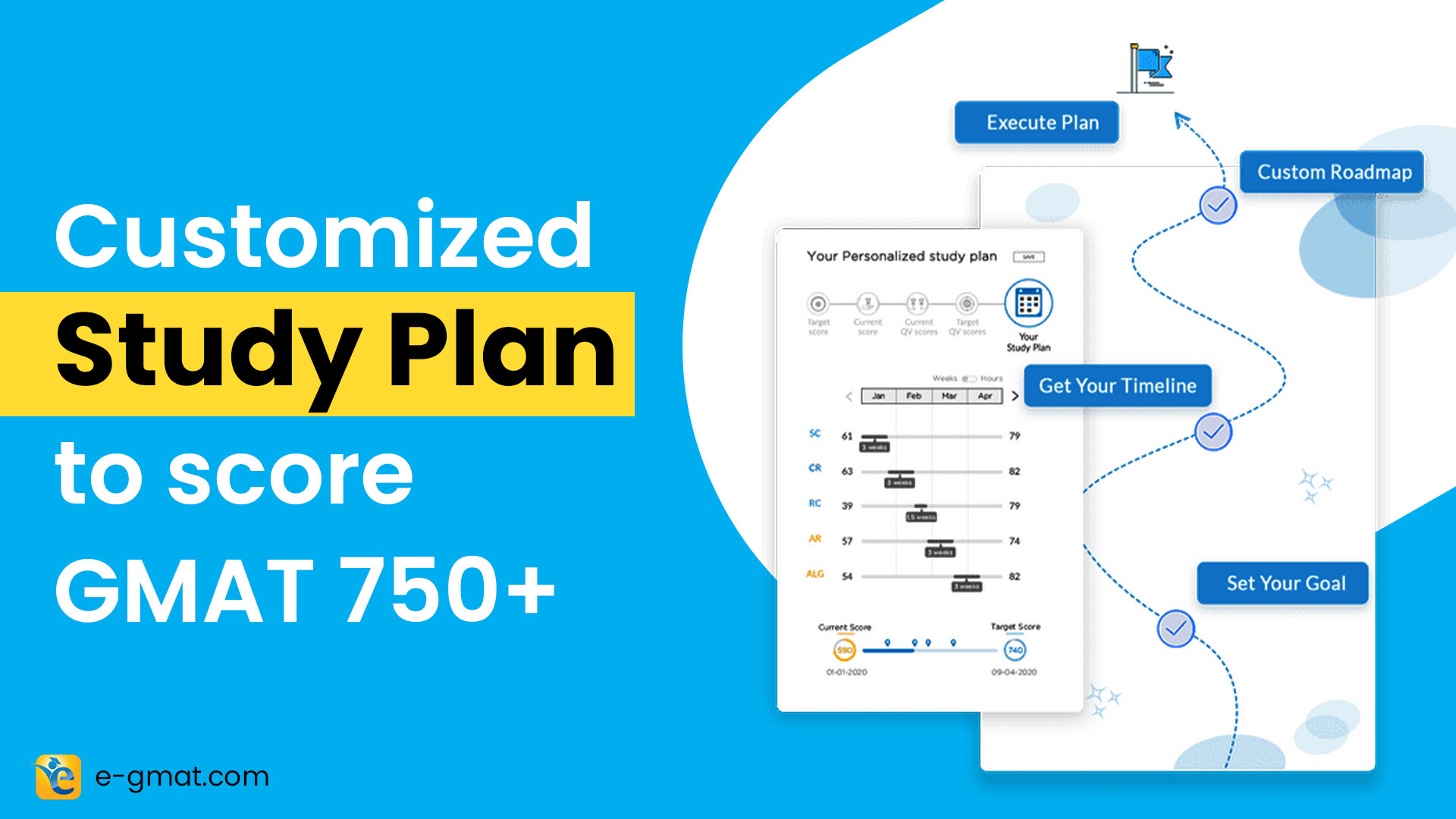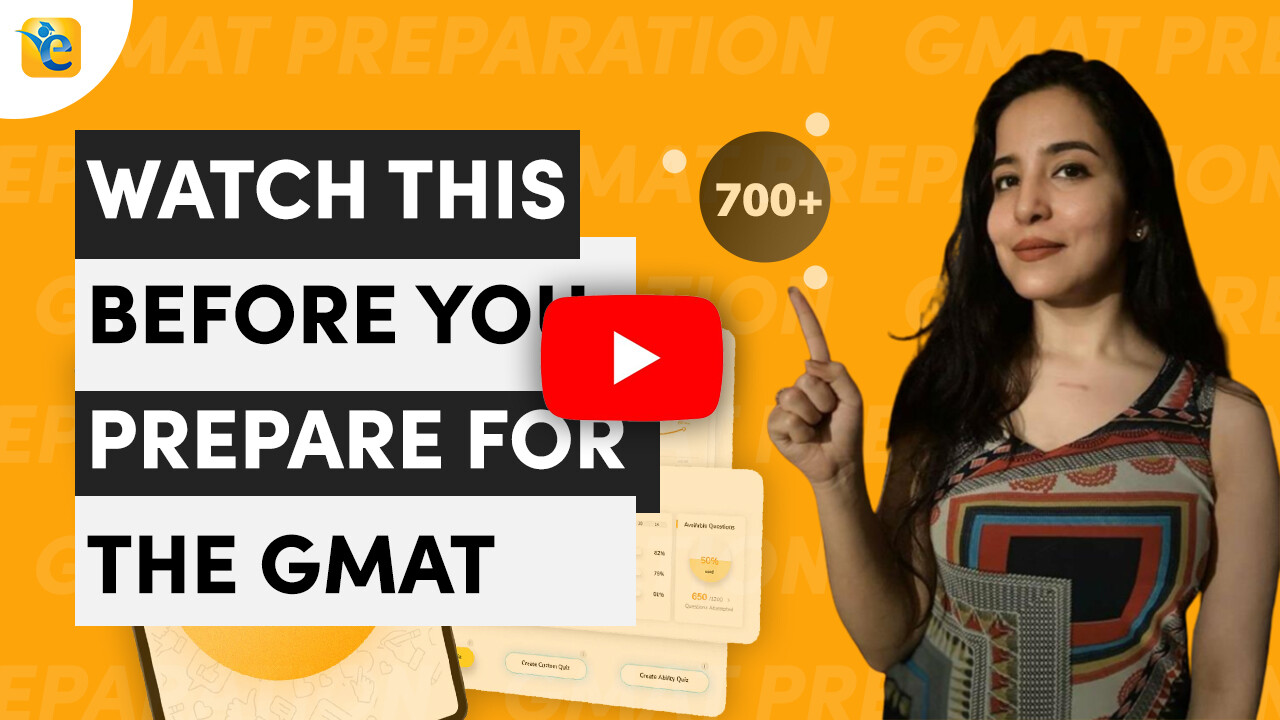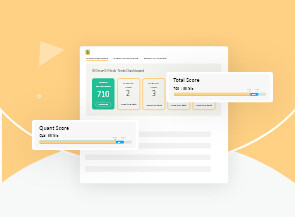Take a method and try it. If it fails, admit it and try another.
Yash kept trying new ways to achieve his target until he crossed the GMAT 700 barrier and scored a 710. After spending more than a year preparing for his first three GMAT attempts which resulted in sub-par scores, he realized that self-studying with free resources, courses, and shortcuts on the internet that claimed to enable solving GMAT verbal questions in seconds, was untrue. This time he needed to do things differently to succeed.
To strengthen his weakest area, GMAT verbal, Yash pushed himself to the limits. He went through the e-GMAT course diligently, learning new methods, and strictly reviewing each question for every possible gap. He made each day count for the two months he prepared for his last GMAT attempt.
Watch Yash as he talks about his struggle for accuracy, learnings, and strategies that helped him go from 660 to GMAT 710 on the fourth attempt.
First three attempts at GMAT: Mistakes & learnings
Rajat: Congratulations on scoring 710(Q49, V38) on your fourth attempt. How does it finally feel?
Yash: It feels good that I finally broke that barrier of 700, which I have been trying for the past year and a half.
Rajat: You’ve been good at quant, but verbal has been a problem for you. Please walk us through your three GMAT attempts, starting from that first attempt where you got a V30 with a 660. What pivoted verbal for you in your fourth attempt?
Yash: In the first attempt, it was just self-study because I heard that self-study is more than enough to crack the GMAT. To prepare, I solved official guides, and my friends lent me some booklets from their coaching classes. I used to read and watch a few YouTube lectures explaining how to solve essay questions in 10 -20 seconds. I tried replicating those methodologies, only to realize during the actual GMAT attempt that it was not easy.
In my first attempt, I tried solving Sentence Correction questions using those methods during the exam, but it didn’t work out for me. Each time I got stuck between two or sometimes even three options. I wasted a lot of time and ultimately failed to finish all 36 questions in the verbal section. I had to guess the last five or six questions because of time constraints. So that was about my first attempt.
In the second attempt, I followed a bit of a structured approach with the help of one of the courses. But again, there was not much improvement in my score. Although I learned grammar rules, I was not focusing on understanding the meaning of SC questions.
Pattern recognition was the main thing I was missing. There are YouTube videos where everyone talks about doing SC questions in 10-20 seconds, but it does not work like that.
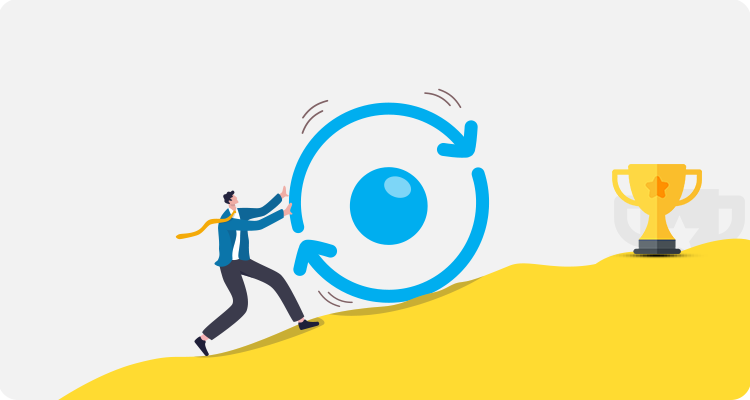
The third attempt was in haste. I thought I could not perform on the second attempt because I had a bad day, so I quickly booked the next attempt within a month.
Rajat: You booked your third attempt in haste because you were not convinced that scores in the second attempt reflected your true potential.
Yash: Yes, because even in my official mocks, I never scored as low as 660. I consistently scored between 680-690 to 750-760 also at times. Maybe a couple of them were reattempts, but I got 740-750 in one of those.
Rajat: It was only in e-GMAT mocks that you did not get a 700; you scored a 690. In contrast, the other mocks inflated your scores.
Yash: Right. I feel official mocks are outdated because the actual GMAT is way more challenging than official mocks.
So, the second and third attempts just went by, and then I took a break.
There were some problems at home that I had to sort out. I also had to shift from Mumbai to Bangalore for my new job. Once I settled in Bangalore, I started warming up my brain around July.
GMAT verbal prep with e-GMAT
I began with solving verbal OG guides again. I realized that something needed to change because it wouldn’t work again if it had not worked twice before.
That’s when I started researching. A few of my friends told me that the e-GMAT is good. I also confirmed that from a couple of other sources. I did my research and saw that e-GMAT had a good standing record in the last decade. What intrigued me about e-GMAT was that they have something called a meaning-based approach, which got me curious.
Nowhere else was anyone talking anything about meaning. It was mostly about finding and recognizing the patterns, but it wasn’t that straightforward.
So, the meaning-based approach was something I heard for the first time from e-GMAT. I attended one or two webinars before enrolling in the course. That’s where they explained these things and I realized it’s not a ten-second process. However, it seemed to be an accurate method. Initially, I had doubts about the time it’d take to apply that method. I used to take three to four minutes for one SC question; two minutes to understand the meaning before going to the answer choices. However, I decided to trust the process and follow the recommended path. I Learned later that, eventually, you innately start understanding where to pause and how to comprehend, reducing the time significantly.
Rajat: Let’s go back. You bought the course. What was the first thing that you did?
Yash: I started with the introductory videos about the course. I also got my Personalized Study Plan. Although I could not strictly follow the study plan, it helped me build some targets and milestones for myself. I could see how much I needed to study before my final attempt. After taking the course within two or three days, I booked my exam for September 20.
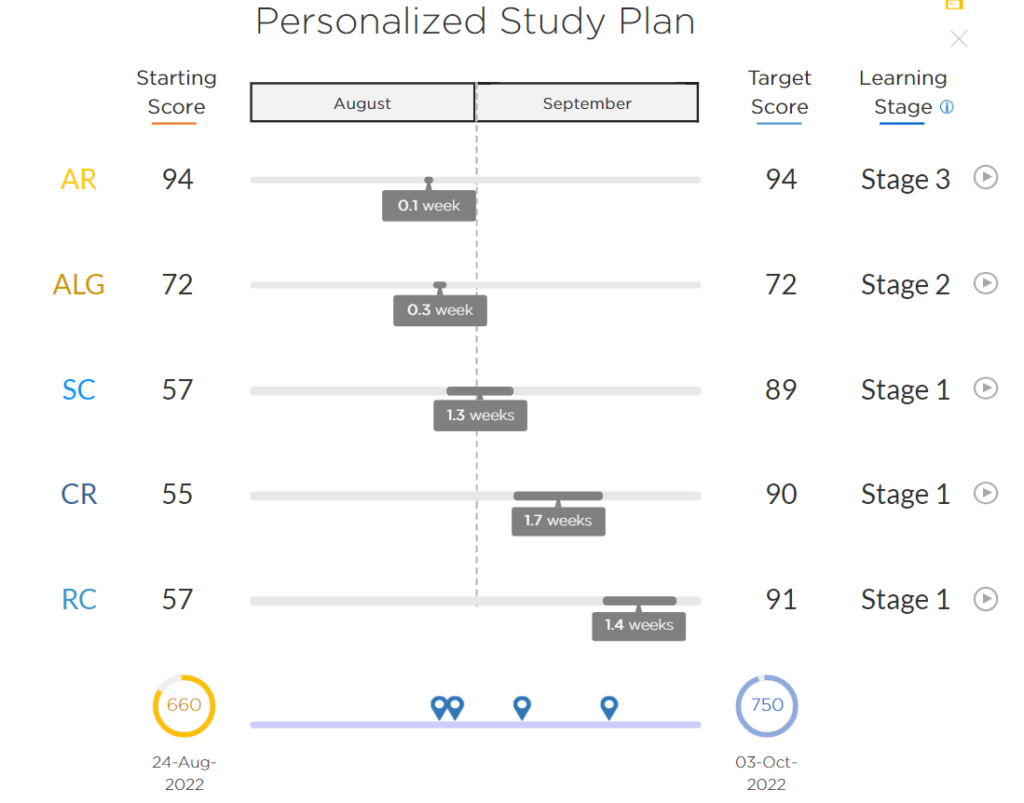
Rajat: It gave you a certain amount of certainty.
Yash: The course helped me understand how much time I needed on each topic, especially Sentence Correction, which was my weakest area.
GMAT verbal methods that helped
Rajat: But you didn’t put in all the hours that the PSP recommended. What did you do after completing the onboarding and getting your study plan?
Yash: I started with the SC course and went through it thoroughly. The good thing about the course was that it changed my approach to SC questions. I learned how to comprehend, which I had never paid attention to. It did not just help me in sentence correction, but also improved my speed in CR and especially RC. I learned when to pause, how to comprehend, and what path to follow so you don’t need to refer back to the passage. I’d get a gist of the author’s intended meaning in one read.
I started with the SC course and went through it thoroughly. The good thing about the course was that it changed my approach to SC questions. I learned how to comprehend, which I had never paid attention to. It did not just help me in sentence correction, but also improved my speed in CR and especially RC. I learned when to pause, how to comprehend, and what path to follow so you don’t need to refer back to the passage. I’d get a gist of the author’s intended meaning in one read.
Although grammar lessons in the course highlighted the importance of grammar rules, the course lectures always emphasized understanding the meaning first.
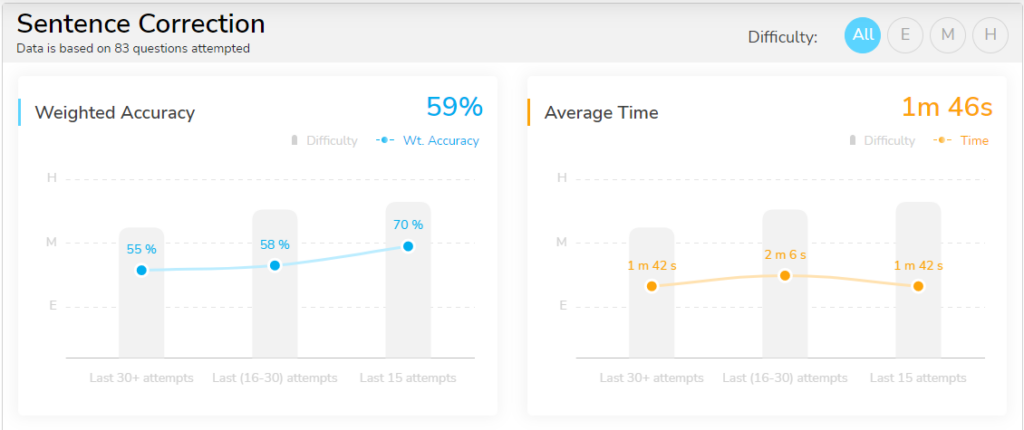
It was really helpful because earlier I was completely missing the meaning aspect. I could now differentiate between grammatically parallel and logically parallel answer choices.
I was not blindly looking for patterns anymore. I’d understand the sentence’s intended meaning before going to the error analysis, wherein we check whether logic and grammar are correct.
As I said earlier, I had slight skepticism that the process would take a lot of time, but with more and more practice, the time to solve was reduced significantly. I could now solve questions much faster in SC and, to an extent, CR and RC as well. In my last GMAT attempt, I could finish 35 questions in time and guessed only the last question.
I had slight skepticism that the applying meaning-based approach would take a lot of time, but with more and more practice, that time was reduced significantly. I could now solve questions much faster in SC and, to an extent, CR and RC as well. In my last GMAT attempt, I could finish 35 questions in time and guessed only the last question.
Rajat: It’s still a significant improvement over what you were doing before. Earlier you were getting V29- V32. Also, this time you were getting more challenging questions, still you could finish almost in time. So, you sped up.
I’m looking at the course profile and your attempts are fantastic. You evaluated every file well, and I see excellent accuracy. More importantly, I noticed good habits here. Even though you’re in the top 25% of people’s scores, you spent enough time reviewing the quizzes.
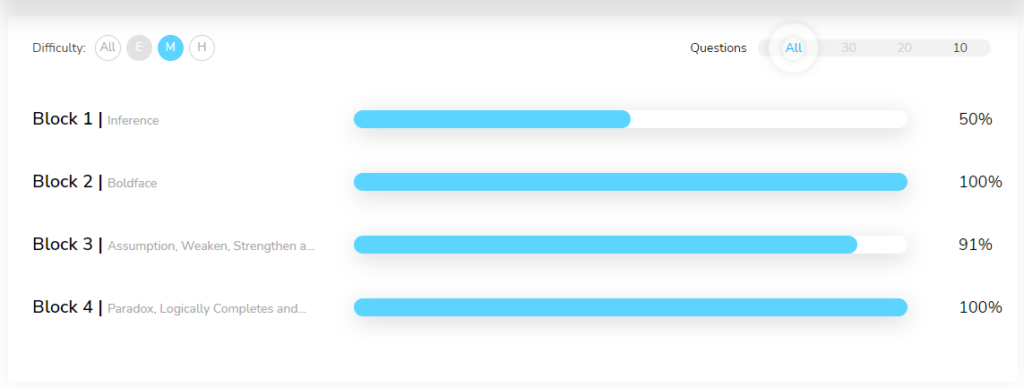
Yash: It was said at the beginning of the course that even if you get the answer right, review to see if you’ve reached the correct answer for the right reason. That’s what I followed. I reviewed practically all questions, whether they were easy or hard. I’d always check if my reasoning matches the explanation given. There might be four or five errors in the sentence, whether I can understand at least two or three errors.
Quote: It was said at the beginning of the course that even if you get the answer right, review to see if you’ve reached the correct answer for the right reason. That’s what I followed. I reviewed practically all questions, whether they were easy or hard. I’d always check if my reasoning matches the explanation given.
Yash’s preparation with mocks
Rajat: Did you take mocks this time?
Yash: I took the SIGma-X mock and scored a 690; I could not cross 700. My verbal score also went down from V35 to V32 as I started paying attention to accuracy instead of time.
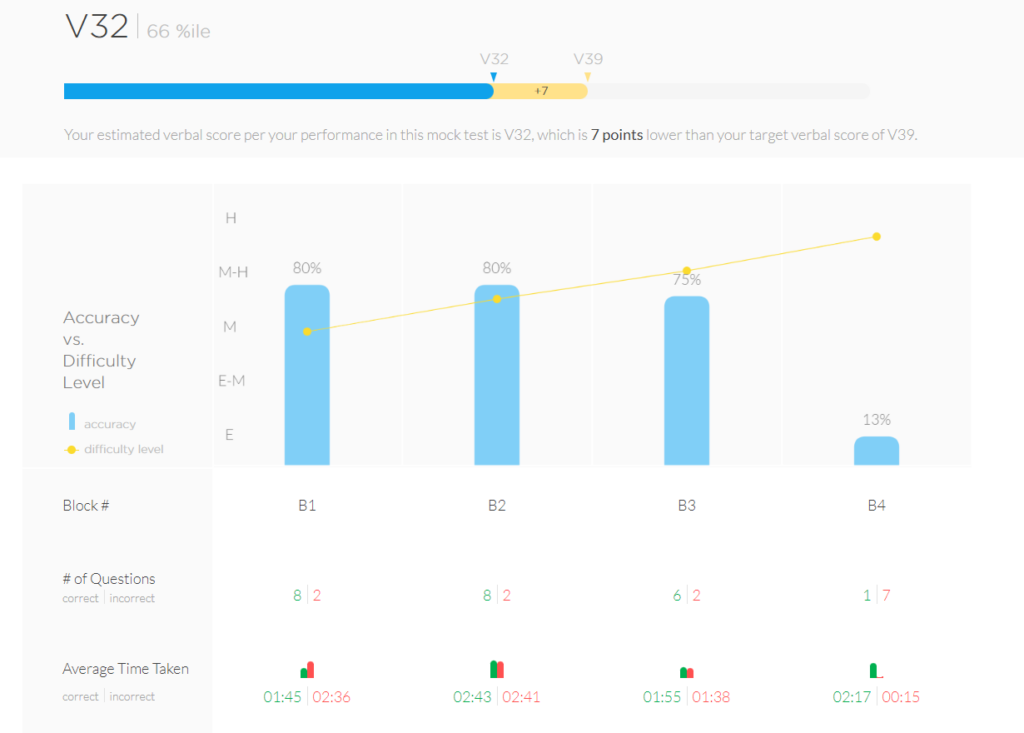
Rajat: So, you did not give up on questions in that mock?
Yash: I did not find GMAT verbal to be easy, as people on the internet say. I decided to focus on improving my accuracy.
Rajat: It was more of a practice attempt than a mock attempt. I can see that your accuracy was phenomenal for this mock but you’ve taken longer to solve questions.
Yash: I needed to change my approach, especially for SC, and also needed to be a quicker.
Rajat: Even in CR and RC, timing greatly impacted your score in mock.
Yash: Honestly, I found the e-GMAT a little more challenging than the actual GMAT. The passages are more complex and overwhelming. Before the final GMAT, I took one attempt with Official Mock and scored 770. Although I knew it was not an accurate indicator, it instilled confidence. That attempt felt much easier because of practicing with e-GMAT.
The questions in the actual GMAT were more or less the same difficulty level, but the passages were perhaps a bit shorter or less complex.
Before e-GMAT, I never had confidence while solving questions about why any answer could be correct and, if not, why. That confidence was something that I got from this course.
Before e-GMAT, I never had confidence while solving questions about why any answer could be correct and, if not, why. That confidence was something that I got from this course.
Rajat: What was the first feeling when you saw a 710 and V38?
Yash: A sign of relief that I could reach 710 from 660. If I could maintain Q50 in quant, I’d have been able to score 720, but there are no regrets. I could finally cross the 700 barriers, and now I can proceed with my MBA applications.
Tips to score GMAT 700+
Rajat: What three things you’d tell other test takers aiming for a 700+ score?
Yash: First and foremost is basics. Be it quant or verbal; if your basics are not clear, you will face a hard time in GMAT. So, get your basics straight. To speak about verbal specifically, since that was my weak area. There are no shortcuts, and I learned that the hard way.
You must understand what that particular sentence or passage is saying. Only after you comprehend can you then go to grammar rules.
The second thing is to focus on your weak areas. Go for accuracy versus overall time because time will improve automatically with more and more attempts. The more inaccurate you are, the GMAT will throw your score even lower. Focus on accuracy first, then worry about timing.
Last but not least, although it looks like I did not study at all for quant and RC, and CR, in every mock I gave, I reviewed every single question. I realized that the e-GMAT’s question bank is so strong and exhaustive that I learned a lot of new things just by studying questions. For example, like in CR, there’s this pre-thinking approach. I did not practice or go through the course but started applying the method. I learned that by analyzing mock questions.
Rajat: That’s very wisely said. I want to add a couple more things to those that make sense in your context. First thing, learning from your first attempt to add to what you said, get accuracy first. If you practice 50 questions, but your accuracy is not improving, then practicing more will not help. That’s because if your accuracy isn’t going up, it will not improve by practicing after a certain threshold of questions.
Another piece that I would say is when you take mocks, understand the feeling you’re getting. Are you confident while rejecting or marking an answer? Because in your case, especially with official mocks, you got high scores, but you weren’t confident, and because of that, you were unable to replicate that performance in GMAT. So that confidence is crucial.
One point which is again relevant in your case is building good habits.
People should learn from the way you reviewed each question. You talked about learning the pre-thinking approach. Even when you get things right, reviewing them right away and budgeting time for reviewing can significantly improve performance.
Thank you very much, Yash. I’m sure many people would learn from this, which will help them get higher scores.


